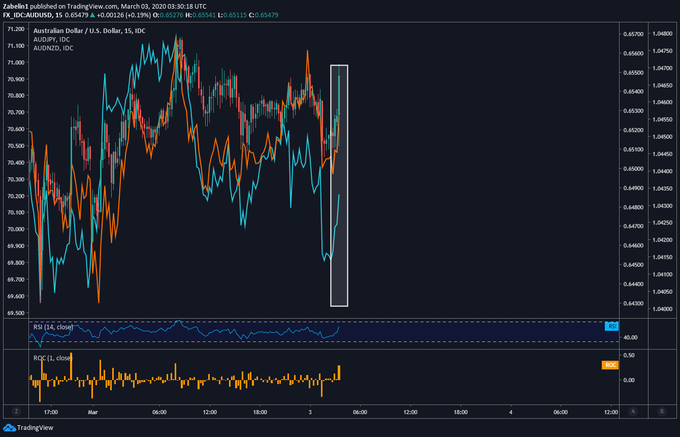Australian shares recorded their fourth consecutive weekly fall as worries of the possible economic impact of the new Omicron coronavirus variant weighed heavily on investor sentiment.
The ASX 200 fell 0.5% for the week as Australia recorded its first community transmission of the Omicron variant. Even though the government continues to hold steady on the plan to reopen the economy and hope arising from news that the new variant may be milder than previous strains it was not enough to calm the investors.
We believe going forward the markets are going to remain jittery until more information about how contagious the Omicron strain is and how effective current vaccines are against the new variant is made available.
With science expected to take another couple of weeks to provide answers on the new strain, the markets are expected to be extremely volatile with investors also assessing if the concerns surrounding the new strain will also hamper the Sata rally which usually starts during the second week of December.

Not all was bad for Australian shares though as all Big Four banks advanced as investors moved towards defensive stocks. A rebound in iron ore prices also helped heave miners BHP, RIO, and FMG record solid gains.
With iron ore and gold again rising during the US session on Friday night, we expect the Australian market to open in positive on Monday with iron and gold miners doing the heavy lifting. However, we would be extremely cautious to trade or buy any new stocks till there is more clarity surrounding the new variant.
Looking forward to this Tuesday will be Reserve Bank of Australia’s final meeting for the year. While it is largely expected the RBA will make no changes to its monetary policy, the traders will be looking forward to RBA’s commentary surrounding bond yields and purchases as that would be pivotal for interest rates.

Traders will also be looking keenly at Australian jobs and wage figures, job advertisements, household spending intentions, and property prices. All data that is released this week.
In regards to gold, the bullion recorded its third consecutive weekly fall as investors remained unsure of a clear direction for the yellow metal. Many analysts believe that Federal Reserve Chief Jerome Powell’s hawkish comments to contain inflationary trends, and uncertainty surrounding the new Omicron variant has kept most investors on the edge and not allowed them to take a price direction.
While Powell’s comments that pandemic-era asset purchases could end sooner than previously anticipated dents gold’s appeal, the fears surrounding economic recovery due to the Omicron variant boost the appeal for the precious metal. As such we expect the price to hold support during the $1770 to $1780 levels for the time being. Having said that we also expect the price to stay below $1800/ounce, thus giving an indication that the suppressed price levels will continue in the short term till there is more clarity on the Omicron.

Oil posted a sixth straight week of declines, the longest streak of weekly declines since 2018 as the emergence of the Omicron variant of coronavirus threatened the outlook for energy demand.
The decline in oil accelerated after the OPEC+ meeting on Thursday where the oil-producing nations agreed to roll over the current production policy to raise overall output by 400,000 barrels per day in January.
The move caught the traders by surprise and resulted in a big oil sell-off. However, it seems the traders realised after the initial sell-off that if OPEC was raising production then they must not be afraid of the Omicron variant and also must not be too concerned that oil prices could fall any further. Thus providing some support to oil prices.

However, we feel that there will be worries surrounding the near-term demand in face of the new variant and it is expected to continue to weigh on markets as traders eye prospects for economic activity and oil demand.
Moving onto currency markets. The Australian Dollar has continued to set new lows against the US Dollar, closing at its lowest levels since July 2020 as the risk-sensitive currency continues to get battered by the emerging Omicron strain.
For a nation that is still recovering from lockdowns earlier this year triggered by the Delta variant, the new strain has once again posed a risk if strict lockdowns ensue. While the nation’s first few cases of the new variant have been detected, Chief Medical Officer Paul Kelly noted that there is no indication that the new strain is more deadly than other strains. Still, AUD has continued to decline along with global equities.
Technically speaking the Aussie is reaching towards the 0.70 level against the greenback. The 0.70 level is a large, round, psychologically significant number and the market will be paying strong attention to that. Previously this number has provided strong support to the local currency. However, given the uncertainty in global markets if we were to take a shot we would be shorting the AUD/USD pair and look towards targets at 0.6800 level.

The Omicron worries also hit the Indian market with the US Dollar rising above the 75.00 mark against the Rupee amid growing worries over the new COVID strain. A decline in oil prices though helped the Indian currency in gaining some ground against other risk currencies such as the Aussie Dollar and Kiwi Dollar.
Moving forward we believe that with risk sentiment on the back foot as well a continued foreign fund outflows the Rupee will remain subdued for the coming week. We also believe that the currency market is likely to remain turbulent over the next couple of weeks.
With traders in risk-off mode, Bitcoin and other cryptocurrencies were all smashed as investors looked for safer assets. On Friday alone the cryptocurrencies lost $500 billion in value with investors jittery over the impact of Covid 19’s Omicron variant.
Comments from SEC Chairman Gary Gensler about cryptocurrency regulation further accelerated the decline with Bitcoin falling below the US $50,000 mark and Ethereum falling to below $3,700.
At the time of writing the report though the crypto market was trying to recover the lost ground on Friday and Saturday with Bitcoin testing the $50,000 mark and Ethereum recovering to $4200 after falling to $3500.
Last week we suggested that at this stage it would be best to sit on the sidelines and see how the market shapes up in the following days and if the correction will most likely worsen or we will get a recovery in the crypto space.

This week our suggestion remains unchanged as we expect the extreme swings in crypto space till the situation surrounding Omicron stabilises.
In agricultural products, wheat recorded its largest weekly drop in three months on record Australian crop.
Wheat prices have soared in recent weeks as the possibility of even more Russian export restrictions fuelled fears of tight wheat supplies.
The global supply worries were eased however after Australia’s chief commodity adviser, ABARES revised its official estimate for the 2021/22 crop to a record 34.4 million tonnes.
A stabilising US crop also helped reduce the price of other food grains with soybean declining 0.2% for the week and corn losing nearly 2% for the week.
Author: Ateev Dang is a trader and trading coach by profession. He runs his own business called Glow trades Pty Ltd where he teaches anyone who is interested in starting on their trading journey how to trade. He can be contacted at adang@glowtrades.com.au.
Disclaimer:
The writers’ opinions in the above article are their own and do not constitute any financial advice whatsoever. Nothing published by The Australia Today constitutes an investment recommendation, nor should any data or content publication be relied upon for providing any investment activities.
We strongly recommend that you perform your own independent research and/or speak with a financial advisor or qualified investment professional before making any financial decisions.





